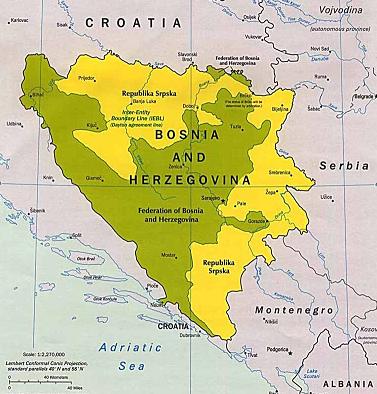Slowly, the interference was reduced and a central government harnessed. That process is now nearly stopped. Reforms remain off. Plans to close the office of the 'High Representative', are repeatedly postponed. What is required is not so much. "It's not about sharing each other's house and bank account. Only to live within the same democracy, where the same laws apply to everyone. But that was apparently too difficult. Especially the Bosnian Serbs and Croats want to uphold the peace agreement set out in the domestic balance of power.
The politicians who most vigorously defend the letter of Dayton (*) are the biggest opponents of state reform. It's like flogging a dead horse, sigh diplomats. That the current format is not working is for sure. Parliamentary decisions can not be taken by simple majority. As one of the populations do not like something, it does not happen. Partly because of that, the country has no government.Also the for a potential EU membership crucial constitutional amendments have not yet been implemented. The current constitution still makes distinction between Bosnian muslims, Croats or Serbs.
Bosnia is more and more economically and administratively behind on neighboring countries in the region, including Croatia. By mutual bickering, the country can loose this year to 96 million euros on pre-accession EU funding. Croatia recently received the green light for accession, which is also intended as a signal to countries in the region: effort pays off. But the Bosnians will have to do it themselves is the message.
There are views that the various ethnic groups in Bosnia will never agree and that the international community should not wait on that. 'Sometimes you have to enforce change. If Bosnian politicians can not solve, decisions have to be imposed from the outside is an opinion. That is possible. The 'high representative' in Bosnia Herzegovina has the power to do this. Without international intervention politicians who want to split get their sentence and who emphasize the differences. After a few years standstill, they can say: 'You see, we have tried, but it really is not possible. Let us separate. Then, 16 years after the war, it will be the conclusion that coexistence in Bosnia is not possible. |

